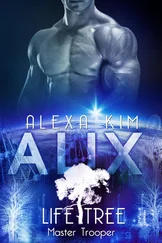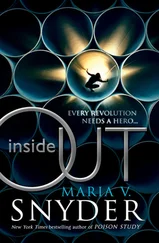Philippe told him that a group of nuns running an orphanage would take him, and added, “AIDS, most likely. Won’t be long.” He meant before the boy died. Tug took him over to the nuns, and he went along placidly. Probably he didn’t have enough calories in his system to make a fuss.
The housing complex was supervised by a resident manager, Etienne, and his wife, son, and daughter. In the late afternoon, when Tug returned home, the son would be kicking around a soccer ball made of banana-tree leaves with his friends in the courtyard, while his sister watched. Etienne was friendly and genial, and the collared shirts and brown pants he wore every day looked elegant on his tall, thin frame. His brother-in-law had studied at the University of Laval, he said, and told many stories of his life there. At one time Etienne and his wife had wanted to visit him in Quebec, perhaps studying there themselves.
“But,” he said, his voice trailing off, his delicate fingers making a vague wave, signaling, Tug supposed, a vast array of circumstance, economics, the pull and problems of home. “I am here instead,” he finished, and offered Tug a beer. Often they would spend an hour together like this, drinking beer in the late afternoons as the boys played around them. He asked Tug about Marcie, his family, and his education. And he explained that his wife’s family were Hutus, and that his own relatives had left Kigali and gone to the south.
“We stay here,” he said firmly, gesturing at the complex, where he swept the courtyard and greeted the residents regally, as if it were his kingdom.
He had heard from his brother-in-law about hockey, and especially about the Montreal Canadiens. He asked Tug about the Stanley Cup and his favorite players, and this — of all their discussions — captured his son’s attention. Yozefu was eleven years old and found this new sport intriguing. He demanded to know the rules and the names of the teams, how the game was played and for how long, and Tug was soon explaining the minutiae of penalty shots, sudden-death overtime, and off-sides. The boy and his friends clamored for more information. Tug, laughing, used a long, sturdy branch to maneuver their soccer ball around the courtyard, showing them the basics of stick handling.
Yozefu caught on quickly, moving the ball from side to side, imitating Tug’s lunging motions and kicks. Tug taught him to say, “He shoots, he scores!” and the boy ran around repeating this over and over, laughing like it was the funniest thing he’d ever heard.
In the doorway of the family’s apartment his sister stood in the shadows, staring fiercely, a half smile curtaining the whiteness of her teeth.
Then the boy stopped and asked Tug why the shoes with blades in them didn’t get stuck. Machete shoes, he called them, because that was the only kind of blade he could picture. And Tug started to answer, before realizing just how impossible it would be to explain. There was no way that Yozefu could understand the idea of a game played on ice, that he could imagine a rink or any part of winter at all.
So he just said the ground in Canada was different. The boy shrugged, and he and his friends played stickball for a while longer until they reverted back to soccer, sometimes shouting “He shoots, he scores!” for no reason, whenever they felt like it.
In Kigali, despite the tension in the air, Tug was happy at first. In times of trouble you put your head down. You set your own worries aside. When people are talking of war and famine, of an army massing to the north, of civilians arming themselves with machetes, of children dying in camps, your only choice is to get through each day. People need help, so you give out water and rice, bring sick children to the hospital, and talk to their parents. Every single day is triage, a blur of urgent activity, a sprint. You don’t worry about your mortgage or the last time you went to the dentist. You don’t have time to think about any of that, and it feels like freedom.
He and Etienne listened to the radio in the courtyard, under the shade of a banana tree. Radio was everything here, and new songs were playing that had shocking lyrics, rippling with hate. In the evening, at the hotel bar, he discussed the songs with his Swiss counterparts, who shrugged them off, telling him he didn’t understand the history here. Tug agreed that he didn’t; he didn’t understand why the Belgians were here in such small numbers when the war was a result of systems they’d instituted. He didn’t understand why the Canadians had sent sufficient forces to seem involved but not enough to actually do anything.
But the big picture wasn’t his area of expertise, and never had been. He was good at logistics, at surveying the topography and figuring out where to put the food tents and the field hospitals. He had always been like this, ever since Boy Scouts, taking refuge in practical problems. These were the universals, and beyond them were moral issues and cultural complexities that you could spend a lifetime trying to decipher without getting anywhere at all.
His fellow aid workers called him the Silent Canadian. Except on the subject of hockey, he would rarely be drawn out much. He didn’t mean to be evasive; he just wasn’t a talker by nature. As a child, he and his father would sit together in the garage working on a Meccano kit or a woodworking project; his mother and sister would be in the kitchen cooking or cleaning, chatting all the while. What his father liked most was to get away from that — he called it the hen party. “Silence is golden,” he told his son, and the worst thing was to talk a lot without having anything to say. He had impressed upon Tug the integrity of saying only what you mean, and the emptiness of words without action backing them up.
At Christmas there was a party at the hotel. Though no one wanted to admit it, this was the hardest season for people far from home: the weather, the food, the company, it all felt wrong. On their way to church, Etienne and his family stopped by to wish him a merry Christmas. They were all dressed in their finest, and Etienne’s wife and daughter were more beautiful than Tug had ever realized, their skin glowing against matching pale yellow dresses. Esmeralda, the girl, shyly stepped forward and handed him a doily she’d stitched. It reminded him of his mother, who also stitched and embroidered; when he told the family about this, they all nodded, evidently not surprised. It only made sense that women were the same everywhere.
Marcie had sent him a care package of thoughtful gifts. Foot powder, medicated lotion, propylene socks. And, of course, fruitcake. On a dim, crackling line he called her at her parents’ house, and in the background heard Christmas carols, cocktail chatter, her nephews yelling.
“I miss you,” Marcie said. “I wish you were here.”
“Me too,” Tug said. It was true when he said it, but by the time he got off the phone and went home to bed, it wasn’t. He longed for certain things: a hot shower, Marcie’s body, a hamburger. But longing was part of life here, and it made him happy to feel his lack of these things, as sharp as hunger. He was addicted to want. He didn’t know how this had happened, whether it was because of his childhood or some quirk of his personality or genes, but somehow he had become a person who needed to do without in order to appreciate what he had.
Between Christmas and Easter the situation worsened. Battles were raging to the west of Kigali; there was talk of full-blown civil war. On the streets of the city he saw gangs of teenage boys dressed in clownish outfits — the Interahamwe. They looked like garden-variety delinquents, driven to vandalism by boredom, but in their eyes was a frightening flatness. They didn’t react to his presence and seemed, in fact, not to see him at all.
Читать дальше












